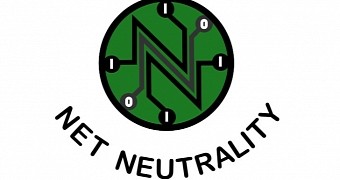The FCC is still debating on the Net neutrality issue, but it seems that the Title II option is finally on the table. This means that Internet Service Providers could soon be reclassified as common carriers in accordance to the Communications Act of 1934.
Tom Wheeler, the FCC chairman, has stated that they haven’t thrown out the idea of using Title II to fix the problem of net neutrality. This would give the commission enough power to legally compel ISPs to respect the rules and force them to treat all Internet traffic the same, regardless of the company it comes from.
This has long been an issue that has been pushed by activists from all over the world, including during the recent Internet Slowdown Day. This is seen as the only alternative to allowing the ISPs to create so-called fast lanes.
The issue stems from the fact that a court told the FCC that it didn’t have the legal power to enforce net neutrality. Following the disastrous decision for the future of the open Internet, Tom Wheeler came up with a plan that has been heavily criticized over the past few months – allowing the ISPs to create so-called fast lanes. The big problem about these is the fact that they’d entail zero technical upgrade.
Few solutions to save Net neutrality
The only way ISPs want to create the fast lanes is to slow down the other sites and products in order to justify charging the big data hogs such as YouTube and Netflix. This very idea goes against everything that net neutrality stands for.
Netflix has already been bullied into signing a peering deal because their traffic had been throttled to the point where clients decided to quit using the service. The company has since joined the net neutrality movement, stated as often as it could that ISPs should not be allowed to have such control over companies.
Supporters of Net neutrality have urged the FCC to take action. 3.7 million comments have been sent to the FCC over the past few months. The Internet Slowdown Day alone brought in over 700,000 of them, as well as over 2 million emails and 303,000 phone calls to Congress in a single day. Over 40,000 websites around the world joined the battle on September 10, displaying an ever-loading wheel on their home pages to represent the loading issues people could see every time they visit a website that hasn’t paid the ISPs for access to a fast lane.

 14 DAY TRIAL //
14 DAY TRIAL //